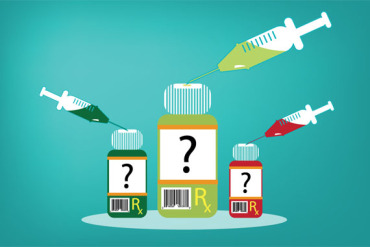With medical development increasing at a logarithmic rate, it seems as if we hear about new life-saving medical treatments every day. However, the lengthy process of FDA approval can take decades to complete, while terminally ill patients who could benefit run out of time. Hope was brought by the FDA to these patients through an expanded access to investigational drugs program. This allows patients who have run out of treatments for terminal illnesses to try drugs that have not fully completed FDA approved testing [1]. Though this may seem like a saving grace to those without options, these policies may be doing more harm than good.
The primary ethical argument for expanded access is a person’s right to diminish their suffering and to improve self-preservation. Logic holds that as rational actors, patients should be capable of fully understanding their condition, understanding the risk-benefit thresholds of taking an untested medication, and making well informed decisions about their medical care. If all of this is the case, then patients should be able to pursue the treatment options they wish to pursue and live out their condition with open eyes. However, the autonomy of their decision making is shadowed by the debate of whether or not patients truly understand the risks and benefits of their treatment.
A difficulty facing many terminal patients is the inability to truly understand the risks and benefits of these investigational medications. In a recent 11-year study of oncologic drugs, only 10% of medications that made it through Stage 1 clinical trials had any meaningful clinical benefit [2]. Despite this, terminally ill patients tend to hyperinflate the possible benefits and undermine the risks, giving them notoriously low comprehension of the risks [3]. They also reported a very low correlation between actual risk and self-perceived ability to understand risk [4]. This means that not only do they not fully understand the risks, but they do not understand that their perceptions distort the reality of their situation. Given these implications, it may be true that patients may not be considered rational actors who can make well informed medical decisions. Regardless, we still need to consider the medical ethics as healthcare providers.
The most effective applications for the expanded access policy involves active participation of the patient’s treating physicians. As healthcare providers, our job is to look for the latest and greatest that could give our patient a fighting chance at beating their illness. The expanded access policies allow us to add another weapon to our arsenal, giving us every shot at making them better. However, the first rule of medicine is “do no harm,” and giving these medications risks causing more harm than good. As the term investigational drug implies, these drugs are not fully understood and could have both painful and dangerous side effects. The majority of clinical information that the physician has access to remains proprietary, thus only available to the extent the manufacturer permits [5]. This puts the provider in the predicament of giving medications that they are not familiar with and with unknown effects. If we give this medication that has a terrible side effect, are we really able to say we have not done harm?
Despite the controversy, the public has taken to the expanded access policy in storm, with many states including “right to try” laws for easier access and incentives for pharmaceutical companies [6]. As future healthcare workers, we must consider expanded access to investigational drugs as both another weapon to help and a source of harm. Either way, both the patient and physician need to strongly consider their options before choosing this path.
Samuel Timm is a student at The University of Arizona College of Medicine – Phoenix, class of 2019, and is a native of Arizona. He graduated from The University of Arizona in 2013 with a Bachelor in Science in psychology. His academic interests include medical ethics and medical advocacy in legislation and policy. In his spare time, Sam enjoys swimming, playing guitar, traveling, and hiking. If you have any questions or comments, please feel free to contact him at samuelt[at]email.arizona.edu.


